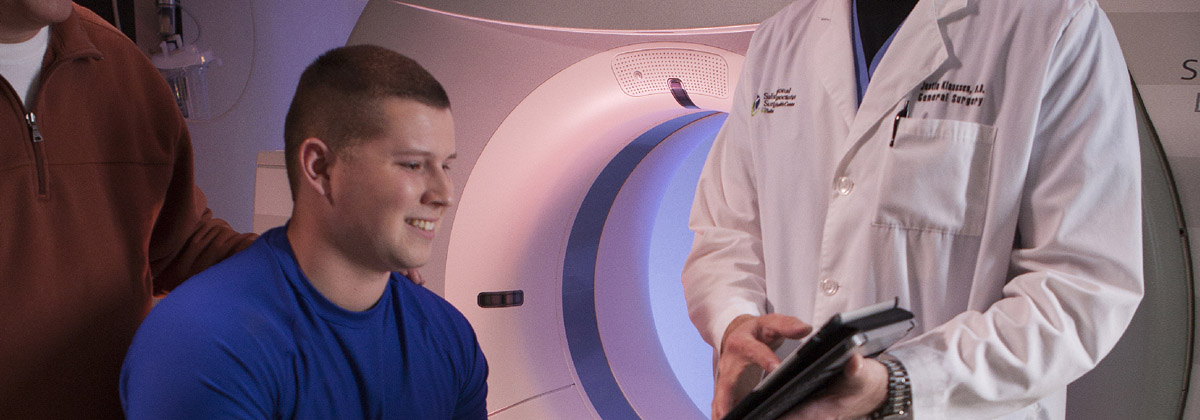Sports Concussion
According to the University of Pittsburgh's Brain Trauma Research Center, the annual incidence of sports-related concussion in the United States is estimated at 300,000. Estimates regarding the likelihood of an athlete in a contact sport experiencing a concussion may be as high as 19% per year of play1.
The School Sports Head Injury Prevention Act requires that schools educate athletes, parents and coaches about the dangers posed by concussions. The law also requires that any athlete suffering or suspected of suffering a concussion be removed from play or practice immediately and requires written permission from a doctor to return to play or practice.
Our concussion management team offers athletes, parents, coaches and educators information on concussion awareness and prevention. As a tool and resource to help us determine when an athlete can safely return to play, we use tests that include SCAT5 for baseline testing and post-injury evaluation.
Concussions are a traumatic brain injury caused by a blow or jolt to the head that causes the soft tissue of the brain to knock against the skull's bony surface. Although they range from mild to severe, they are all serious injuries that can harm the way the brain works. For many of these injuries, the athletes never lose consciousness, yet still suffer significant damage.
Concussions can happen to any athlete in any sport. The short-term effects of a concussion can generate additional problems that may plague a person through life. When young athletes have a flawed memory, they can have difficulty concentrating in school, relating to other kids, or sleeping well, and these things can have long-term devastating consequences.
One grave danger occurs when athletes go back to the game before they fully recover from a concussion. In such a case, even a mild blow can cause a second impact syndrome. That can lead to brain swelling, brain damage, and even death. Statistics also show that the risk of concussion in football is three to six times higher in players who have had a previous concussion1.
If your child has experienced a bump to the head during a game or practice, look for any signs and symptoms of a concussion. Seek medical attention immediately if you believe your child has a concussion.
Signs & Symptoms of a Concussion
- Remove your child from play.
- Make an appointment with your primary care physician for evaluation within 72 hours or less of injury. Do not try to judge the seriousness of the injury yourself.
- Keep your child out of play until he or she is released by a primary care physician or pediatrician to return to activity. If you do not have a primary care physician or your primary care physician does not provide concussion management, Salina Regional Health Center has several physicians trained in concussion management:
-
- Drs. Gary Williams, Garrett Hooker and Brad Irvin, COMCARE Ohio (785) 825-8221
- Drs. Ben Dolezal and Wendy Dinkel, Lindsborg Family Health Care Clinic, (785) 227-3371
- Drs. Matthew Pyle and Kevin Klug, Salina Regional Orthopedic and Sports Medicine, 520 S. Santa Fe, Suite 400, (785) 452-7366
- Salina Pediatric Care, 501 S. Santa Fe, Suite 100, (785)825-2273
* Kansas State High School Activities Association requires immediate removal of a student with a concussion or head injury during a game or practice. The student must be evaluated by a health care provider to return to practice or play. A written cleared for return to practice and sports event is required. The National Federation and KSHSAA advise the student not to be cleared or practice for sports event the same day the concussion was observed.*

